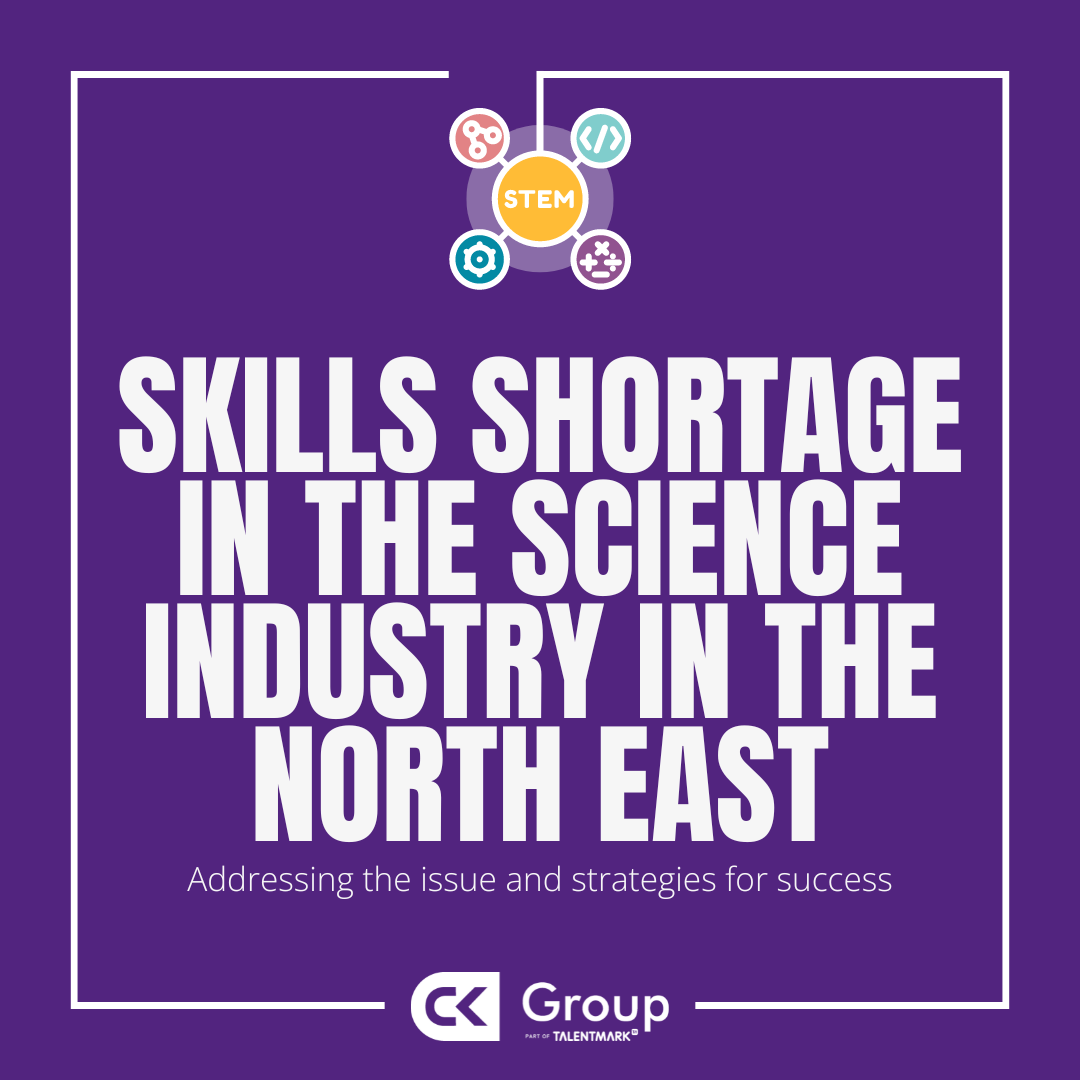The North East of England has a rich history of scientific innovation and technological advancement but it also faces unique challenges related to skills shortages in the science industry. With a growing demand for skilled workers in sectors such as biotechnology, pharmaceuticals and advanced manufacturing, addressing this skills gap is essential for driving economic growth and prosperity in the region.
Let’s explore some tailored strategies for success:
Invest in STEM education initiatives
We need to start with the children. Investing in STEM education initiatives is crucial for nurturing the next generation of scientists, engineers and researchers in North East England. Collaborate with local schools, colleges and universities to develop and support STEM programs that align with the region’s key industries and economic priorities. Provide resources, scholarships and mentorship opportunities to inspire students to pursue careers in science-related fields.
Offer work-based learning opportunities
Offering work-based learning opportunities such as internships, apprenticeships and placements is vital for providing students and early-career professionals with hands-on experience in North East England’s science industry. Partner with local businesses, research institutions and industry organisations to provide practical training and exposure to real-world projects. These opportunities can help bridge the gap between education and employment while strengthening the region’s talent pipeline.
Support professional development and lifelong learning
Supporting professional development and lifelong learning is essential for retaining and upskilling existing talent in North East England’s science industry. Offer employees opportunities to enhance their skills, pursue advanced qualifications and stay informed of emerging trends and technologies through training programs, workshops and industry conferences. Encourage a culture of continuous learning and innovation to drive growth and competitiveness in the region.
Strengthen regional partnerships
Strengthening regional partnerships is essential for addressing the skills shortage and driving economic growth. Forge collaborations with local authorities, universities, businesses and industry organisations to align efforts, leverage resources and maximise impact. Collaborative initiatives such as sector-specific clusters, skills associations and innovation networks can help create a supportive ecosystem that nurtures talent and fosters innovation in the region.
Addressing the skills shortage in the science industry in the North East of England requires a coordinated and collaborative approach that includes investment in education, work-based learning opportunities, support for professional development, fostering innovation ecosystems and strengthening regional partnerships. By implementing these strategies, stakeholders can build a skilled and resilient workforce that drives innovation, economic growth and prosperity in the region for generations to come.
Thank you to our Associate Director, Graeme Pallas, for these insights.
You may also like to read:
STEM skills gap projected to cost the UK £120 billion by 2030
